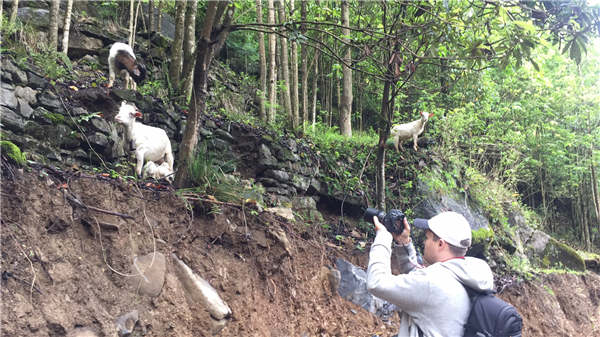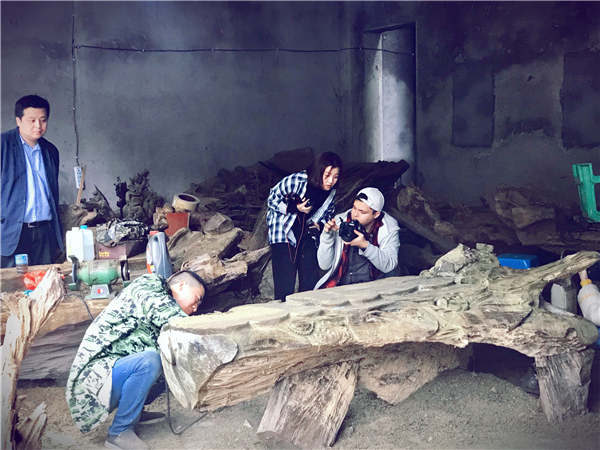China from behind the lens


Grobbelaar shooting his documentary for the project at the Fairy Maiden Mountain in Chongqing. [Photo provided to China Daily]
Since its launch in 2011, 405 young filmmakers from 49 countries and regions including the United States, United Kingdom, France, Canada and Israel have participated in the project.
By 2017, they had produced 404 short documentaries based on their visits to more than 20 provinces of China and had garnered more than 90 awards in China and abroad, according to Huang Huilin, a professor at BNU who founded the Looking China Project and is director of the Academy for International Communication of Chinese Culture.
In 2017, the focus of the Looking China Project turned to craftsmanship. Foreign participants were asked to shoot documentaries that demonstrated their understanding of Chinese craftsmanship, and to highlight the cultural inheritance and innovation imbued in it.
The Sheng Chang Watch Shop was founded in 1928 and Li's boss, Zhang Xiangjie, 45, is the third generation of owners, who is famous locally for his sense of public spirit.
Zhang's innovative approach to combing business with the public interest has been widely reported in the media, and his desire to pass on his skills to disadvantaged groups rather than keep them in the family.
Several works in the 2017 Looking China Project focused on the types of traditional Chinese craftsmanship that are so familiar that many people take them for granted, while some others looked at the craft traditions that are rapidly vanishing in China's fast-paced society.
By telling these stories from the unique perspective of a young foreign filmmaker, these documentaries are helping to connect Chinese craftsmanship with more universal themes.
One example is the short documentary The Bridge Between Us by Serbian filmmaker Akos K. Kovacs. The film examines the father-son relationship bridged by the traditional Chinese musical instrument of the erhu as its techniques are passed down through the generations.
Immersed in a solo piece of music, the son breaks into a spontaneous smile as he expresses his feelings while playing the erhu.
Yet there was a time in the young man's childhood when he found learning the erhu to be an unbearably tortuous experience.
To escape the laborious process, the son used to record himself playing erhu and often played back the recordings to pretend he was practicing for hours on end. However, his father eventually discovered his trick, and ended up severely punishing him.
The father, who had been working in an erhu factory for 37 years, hoped his son would follow in his footsteps and was not impressed by his son's reluctance to practice.
But it was only after becoming an erhu teacher himself, the son finally realized the importance of cultivating a child's persistence. "Without my father, I wouldn't be the man I am today," he finally admits at the end of the documentary.

Grobbelaar shooting artists creating root carving works in Wulong county during the project. [Photo provided to China Daily]




